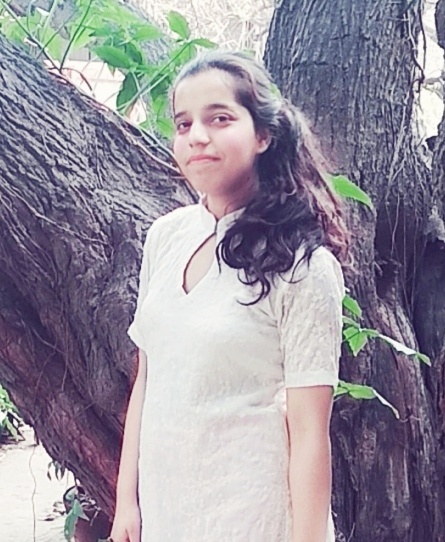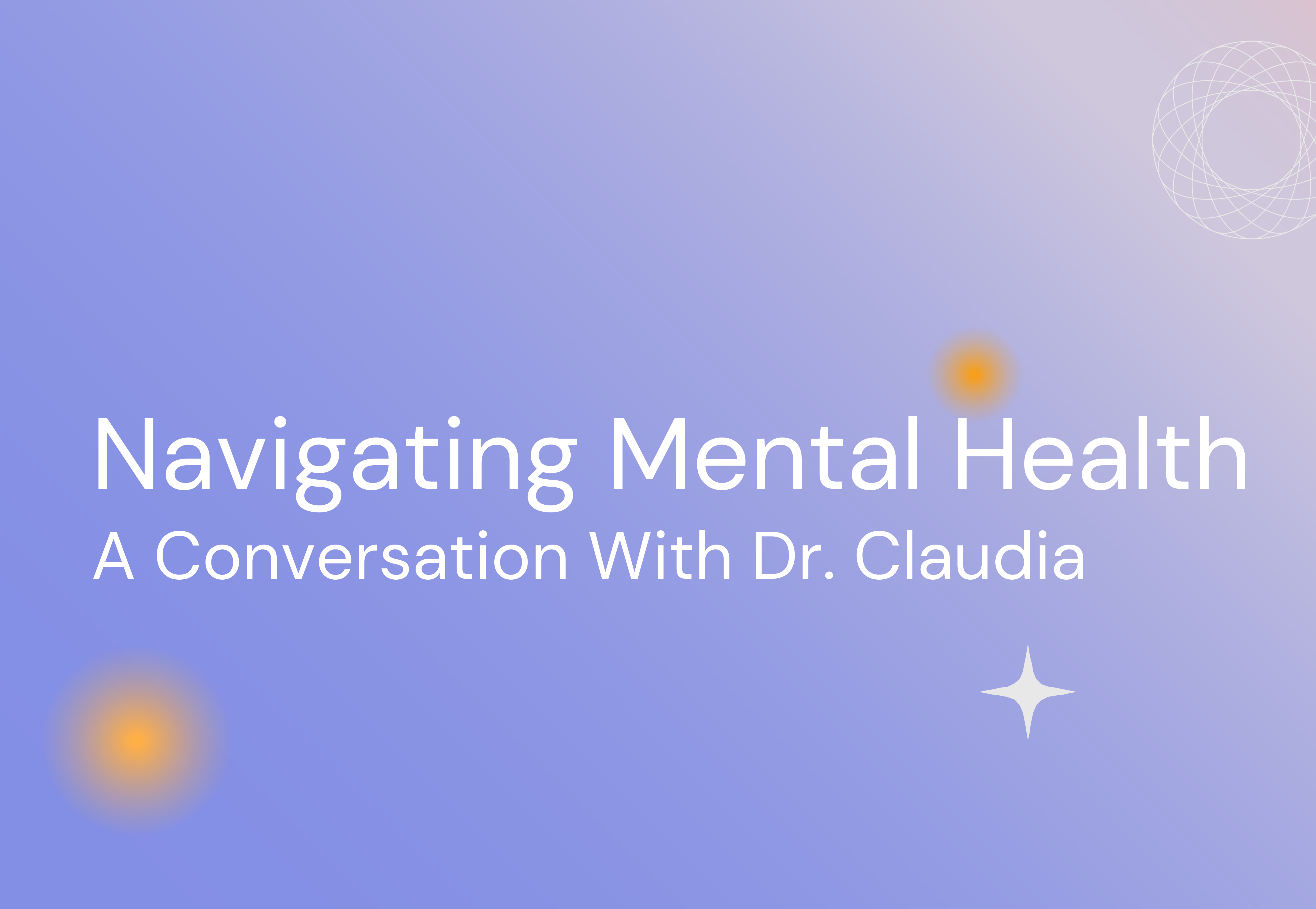I was excited at the opportunity to recently interview Born This Way Foundation’s Director of Research + Evaluation, Dr. Claudia. In addition to being a licensed professional counselor (LPC), she is also a prevention scientist who works to help youth with their mental health. During our interview, we chatted about how we can normalize the conversations around mental health, reduce stigma, and promote support within communities. Read on to learn more!
Vaishnavi: Thank you so much for joining me to talk about mental health! I’m excited to get started! So, I see that you were a bilingual school counselor and worked in schools for the first decade of your career. What did you learn from that experience about mental health and well-being in working with students in schools?
Dr. Claudia: Yes, that is correct. In the first decade of my career, I was a public school teacher, a bilingual school counselor in NYC, and part of the founding leadership team for Bard High School Early College in Newark, New Jersey.
And, through these experiences, I learned: Engaging young people is critical when seeking solutions to address child and adolescent mental health. If we want to be effective in our solutions, we need to connect with them and elevate their stories to make sure we are meeting their needs. And, in fact, that’s what drew me to Born This Way Foundation – their youth engagement and youth-driven efforts are aligned with mine.
Vaishnavi: You then transitioned to a 10-year career at Yale University. Could you share more about what you accomplished during that time?
Dr. Claudia: I started at Yale while I was a doctoral student at Columbia University’s Teachers College. While working in schools, I was also completing my doctorate. During this time, I met a professor at Yale who was conducting research on wellness policies in schools and she invited me to extract my dissertation from her study. My dissertation focused on facilitators and barriers to the implementation of school wellness policies. I was intrigued by this topic because research shows that it takes 17 years for policies and programs to become practices and I wanted to learn how to close that gap.
After I completed my dissertation, I completed my postdoctoral training on the design and development of digital interventions. I became faculty shortly after and my specific area of research focused on the development and evaluation of digital games and programs using youth-led participatory action research. Topics focused on suicide prevention, substance use prevention, mental health promotion, school-based health centers, and more. Working alongside my research projects, I founded Youth4Wellness at Yale, a youth research advisory board that informed the development and evaluation of my studies. At every stage of my career, youth were and continue to be with me in seeking solutions.
Vaishnavi: From everything you said, it’s clear that the way we talk about mental health is important. What are some of the ways we can ensure our language is always respectful in the mental health space, especially when talking to those who struggle with their mental health?
Dr. Claudia: This is really important and it is important to note that language evolves over time. Using human-centered language when discussing mental health can ensure our language does not unintentionally perpetuate stigma. For example, I have a background in substance use prevention. When discussing sensitive topics related to substance use we can adopt language such as “an individual with substance use disorder” rather than “an addict.” Language that puts the person before their mental health disorder really makes a difference.
As a resource for talking about mental health, at Born This Way Foundation, our team created the Be There Certificate in partnership with Jack.org, which is an online self-paced course that equips youth and adults with the language and skills to have conversations around their mental health. “Say What You See” is the first golden rule covered in our Be There Certificate modules. It can be really helpful to offer an observation, rather than an assumption, when checking in on a friend. For example, “I notice you haven’t been coming around lately. I was wondering how you have been feeling?” can be a respectful way to check-in with someone about their mental health.
Vaishnavi: When should someone seek professional help for their mental health?
Dr. Claudia: There is never a bad time to seek support for your mental health. Depending on your symptoms, seeking help can vary from connecting with a peer to a trusted adult to a school-based provider to an outpatient provider. It is important to continually observe your symptoms because there are warning signs that may indicate you are struggling and would benefit from seeking professional support. Warning signs can include feeling unmotivated, social isolation, experiencing unwanted thoughts, or even changes in sleep or appetite. If you notice that your mental health symptoms are persistent over the course of two weeks or longer, consider reaching out to a school social worker, school psychologist, or school counselor, or visit https://bekind.findahelpline.com/ to assist in finding a provider outside of school.
Vaishnavi: Although being empathetic is an important characteristic for a professional to have, what other characteristics should a professional possess for someone who wants to pursue counseling?
Dr. Claudia: In addition to being empathetic, being non-judgmental is key. There is a heavy stigma surrounding mental health, and often this is the first time clients are opening up about their concerns. As such, it is important for professionals to be non-judgmental, to allow space for all emotions to breathe, and to sit in this space with you.
With this being said, there are also many different types of therapeutic approaches, and counselors can vary in their style based on personal characteristics, theoretical orientation, and interventions they are trained in. Above all, it is most important to find a counselor that possesses the qualities that are important to you at this stage of your mental health journey. This may look different depending on your needs at the time.
Vaishnavi: I’ve unfortunately had the experience of having a mental health professional being a little insensitive and unkind while listening to me. If someone has a similar experience, should they consider changing their therapist or counselor, or should we take it as their personal method for dealing with people?
Dr. Claudia: I am sorry to hear you had that experience. The therapeutic alliance, or the working relationship between a therapist and their client, is one of the most important predictors of treatment success. For this reason, it is important to work with a professional you resonate with, and feel supported by. Finding the right fit is often a part of the process. For someone dealing with a similar experience, do not be afraid to make a change or to request a consultation with other professionals to get a sense if they will be a good fit.
Vaishnavi: In looking out for our friends and family, what are some examples of warning signs when someone may be experiencing a difficult time?
Dr. Claudia: Everyone is unique so it can be difficult to tell when someone is struggling with their mental health, or just going through normative ups and downs of life. A good rule of thumb, which is highlighted in our Be There Certificate, is to take note when you see something change from with a friend or family member. For example, if your cousin is a social butterfly, and you notice they have been isolating lately, that could be a warning sign. If your best friend has always loved school, but is now failing her classes, it can be helpful to check in. When we use non-judgmental, human-centered language, there is no harm in reaching out even if we are unsure.
Vaishnavi: What advice would you give someone who is experiencing mental health symptoms and what would be the advice to his/her/their family members and friends?
Dr. Claudia: It is important that someone experiencing mental health symptoms can seek support. Mental health stigma can make it really difficult to do this. My advice to those struggling, family members, and friends is to normalize having ongoing conversations about mental health. This can be as simple as checking in with loved ones during meal times, while in the car, or during activities together. My friend who lives in another state will frequently send me a text with “EOTM?”(meaning Emoticon of the Moment) and I have to select the emoji that I am feeling. I do the same with her and it is our way of checking in on one another. The more we practice checking in on one another, the more we can destigmatize help-seeking, and foster a sense of support within our communities.
Vaishnavi: Thank you so much for joining me today to talk about mental health! I really appreciate your time and learned so much! Just one last question for you: Dr. Claudia, if there was one thing you want everyone reading to take away from our discussion, what would that be?
Dr. Claudia: I hope everyone reading can take away that taking care of your mental health is not a one-and-done event. It is a process of developing skills to better understand yourself, your trauma, and your needs in order to better respond to yourself and the world in a thoughtful, kind, and brave manner.





















